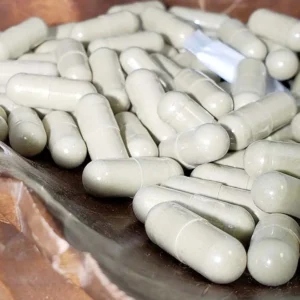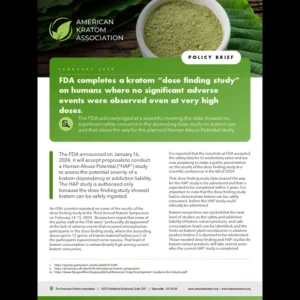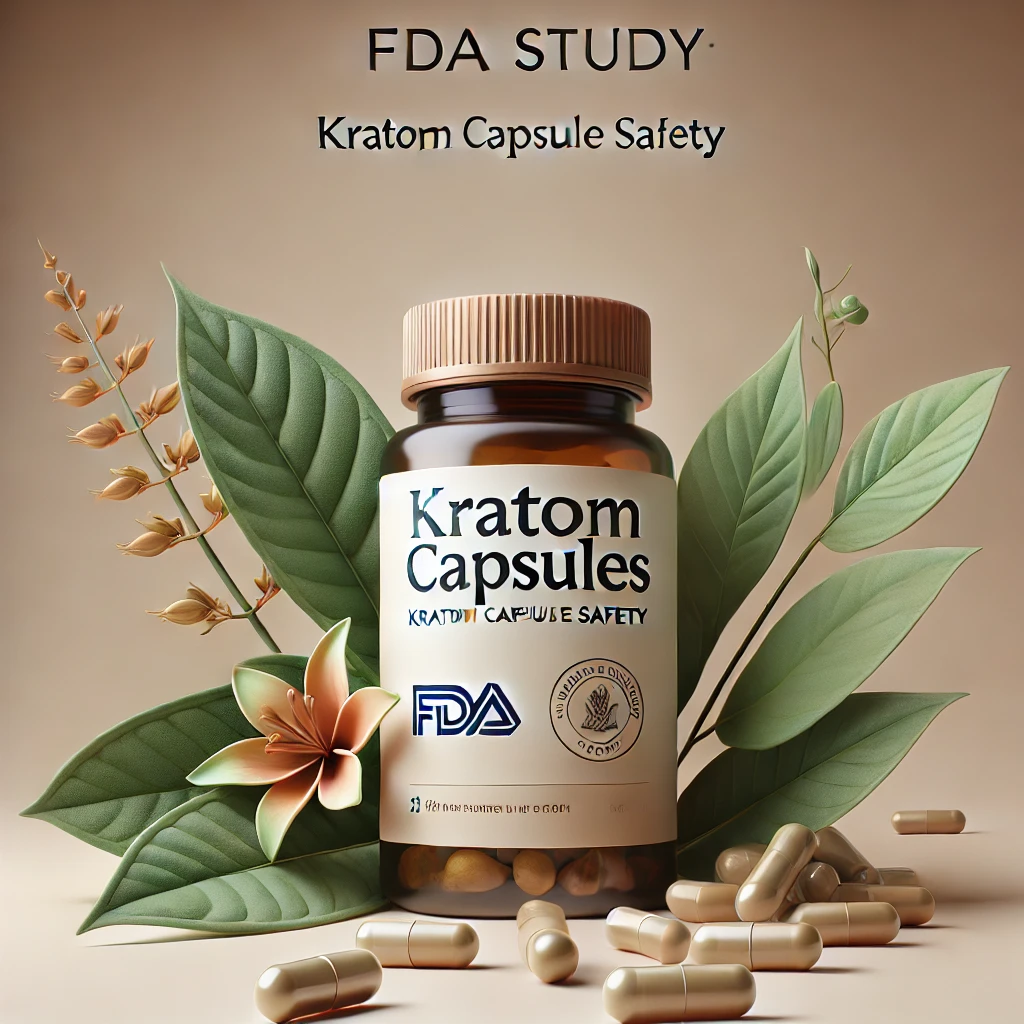Kratom Capsules Appear Safe in Preliminary FDA Study: More Research Needed on Concentrates and Drinks
Kratom, a botanical with roots in Southeast Asia, has been at the center of regulatory debates in the US, with the FDA warning against its use due to concerns over potential risks. However, a recent FDA-led a dose finding study suggests that kratom leaves, when consumed in capsule form, appear to be safe even at higher doses.
The FDA has completed a “dose finding study” on kratom in humans, where no significant adverse events were observed, which helps to understand the kratom dose in humans.
The Study Findings: Kratom Capsules Safe at High Doses
In the FDA’s first research study on kratom, the agency aimed to address the lack of formal research surrounding this widely used botanical compound. The FDA study focused on dried and powdered kratom leaves, taken in capsule form, a method similar to traditional use in Southeast Asia. The findings indicated that kratom was well-tolerated, with no reports of severe or life-threatening events even at higher doses. The most commonly reported side effect was vomiting, which occurred primarily in participants who received the largest doses.

Kratom Capsules for Sale
Although the FDA study’s conclusion is promising, it has not yet been peer-reviewed or published, though the FDA has indicated that further steps will be taken to share the findings with the scientific community.
Exclusion of Popular Kratom Drinks and Concentrates
While the FDA study offered insights into the safety of kratom capsules, important questions remain about kratom-based drinks and concentrates, which are popular in the US. These products often contain much higher levels of kratom’s active compounds than the capsules studied by the FDA. Researchers and regulators are concerned that these higher concentrations could pose a greater risk to consumers.

A colorful collage of 10 different kratom drink recipes, each in a unique glass or mug, surrounded by fresh ingredients.
Experts believe that kratom-based beverages, often marketed as alcohol-free alternatives, are more likely to be associated with negative effects compared to traditional methods like chewing the leaves or consuming capsules. These drinks are sold widely in convenience stores and bars, raising questions about their long-term safety and the need for regulatory oversight.
The FDA Study Design and Future Research Needs
The FDA study involved 40 participants, divided into five groups. Some were given placebo doses, while others received increasing amounts of kratom leaf powder in capsule form.
Researchers began by administering a 1-gram dose of kratom to the first group of participants, who were required to consume a high-fat meal beforehand. Subsequent groups received doses of 3, 8, 10, and 12 grams, with each participant receiving only a single dose. Following administration, scientists monitored vital signs such as blood pressure, pulse, respiratory rate, and body temperature while also observing for any adverse effects.
Notably, the study required that participants had prior experience ncluding recreational substances, including opioids. This factor could have influenced the tolerance levels of participants, making it difficult to apply the results to first-time or infrequent kratom users.
The researchers acknowledged that the form of kratom used in the FDA study — single-sourced, unaltered botanical leaf powder — may differ from the diverse kratom products available on the market today. While the study provides a foundation for understanding kratom’s safety, much more research is needed to fully grasp its effects and risks, particularly in newer forms like beverages and extracts.

Advocating for transparency and science-based approaches in kratom research: The AKA’s insights on the FDA dose-finding study.
The Bigger Picture: Kratom’s Growing Popularity and Regulatory Challenges
Kratom use has surged in the US, with more than 1.7 million people reportedly using it annually. Despite its growing popularity, regulatory concerns remain. At least six states have banned kratom due to concerns that its opioid-like properties could lead to misuse. In a 2019 report from the Centers for Disease Control and Prevention (CDC), nearly 100 deaths were linked to kratom use, though most of these cases involved the presence of other substances, particularly fentanyl.
The FDA has continued to issue warnings about the risks of kratom, citing insufficient evidence to support its safety. However, advocates of kratom argue that with proper regulation and further research, it could be used responsibly.
The Road Ahead for Kratom Research
The FDA study marks an important first step in understanding kratom’s safety profile, particularly in capsule form. However, the researchers, including Christopher McCurdy of the University of Florida, stress that this is just the beginning. Kratom has been used by people for decades, but the long-term effects of its use remain largely unknown. More studies, especially those focused on newer products like kratom-infused drinks, are crucial to building a complete picture of its safety.
Kirsten Smith, an assistant professor at Johns Hopkins University in psychiatry and behavioral sciences, who was not part of the FDA study, said the findings offer essential baseline information on kratom, despite the study’s limitations. All the scientists agreed that initial research like this is limited in scope and that more data is required for a fuller understanding.
In the meantime, both consumers and regulators are left to navigate the complex landscape of kratom’s potential benefits and risks. As research progresses, more information will likely emerge to guide the future of kratom regulation in the US.






0 Comments